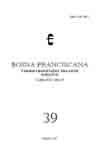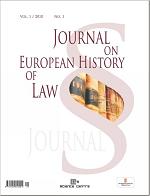
Jesus Christ - word, parable, event
Isus Krist – riječ, parabola, događaj
Strukturalisti kažu da parabole dolaze k nama kao citati unutar teksta evanđelja. To znači da je “govornik” koji kazuje parabolu ujedno i “lik” globalne priče. Parabola je, dakle, imputirana svom govorniku kao onome o kome priča drugoga reda (koja je, ustvari, “prva priča”) govori. Ovakva identifi kacija govornika – koja nam omogućuje da o parabolama govorimo kao o parabolama – stoga je raskrš će dvaju procesa. Jedinstvenost govornika označena je jedinstvenoš ću njegove vizije stvarnosti, a takva vizija stvarnosti implicira dvostruku referenciju – referenciju unatrag na modus bivanja i referenciju unaprijed na govornika koji sebe izražava posredstvom neizravne ispovijesti. Ili riječima strukturalista: govornik je onaj tko “daje” priču u određenoj narativnoj komunikaciji. Jedinstveni govornik pred nama, posredstvom metafori čke priče, razvija jedinstveni modus bivanja. On što nam omogućuje imenovati govornika parabola i nazvati ga “Isusom” jest spoj “lika” evanđelja kao priče i “donatora” parabole kao citata evanđelja. “Lik” evanđeljske priče je i “donator” parabola kao sekundarnih priča te teži postati neizravnim referentom parabole kao metafore.
More...

